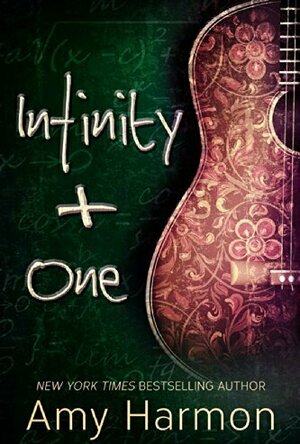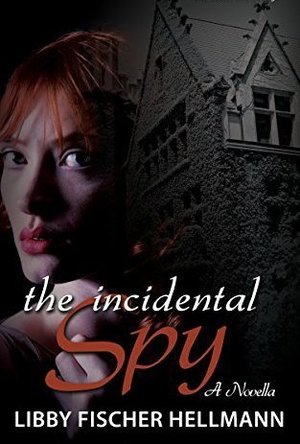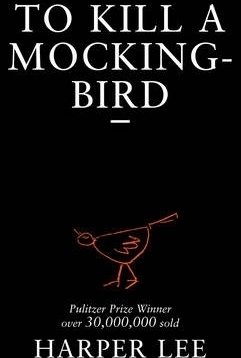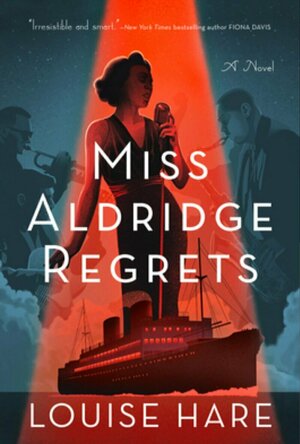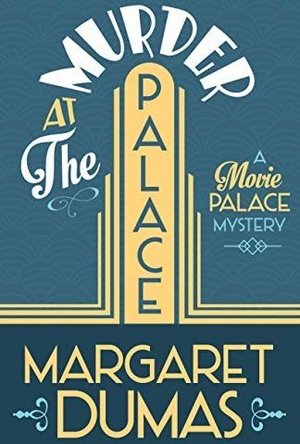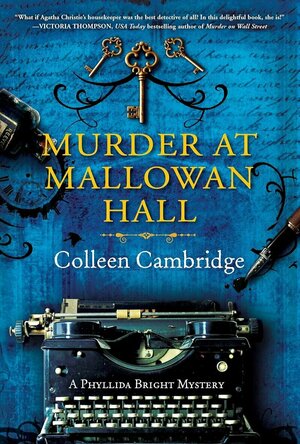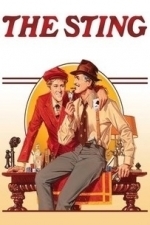Search
Kristina (502 KP) rated Infinity + One in Books
Dec 7, 2020
Oh my gosh, I absolutely loved this book! I had read Amy's 'Making Faces' and wasn't a big fan, so I was a little apprehensive when I started reading Infinity + One. Thankfully, I'm not the type to base an opinion on one experience, because I would have missed out on the awesomeness that is Bonnie and Clyde. When it started out, I was drawn in by the overwhelming emotions Bonnie felt. Though connecting the infamous Bonnie and Clyde to the current duo is made before we're even introduced to the two, I was immediately curious as to how their story would pan out compared to the 1930's couple. I didn't miss the parallel: where Bonnie and Clyde, circa 1930, had brought death and destruction, Bonnie and Clyde, circa 2014, brought kindness and love. Despite being infuriated that Bonnie refused to contact her family or the police for so long, which only made their situation worse, I started to feel sorry for her, because it seemed like everything she did only screwed things up more. I was enraptured from the beginning, both fearing and longing for the end. I took Clyde's perspective on how their road trip would turn out, especially because the "old" Bonnie and Clyde's death was so central to the story.
**Spoiler Alert**
I'm so happy the ending was the complete opposite of what really happened 80 years ago. All the twists and turns given by the media had me confused and, for the most part, I assumed Bonnie's grandmother was throwing in a few false accusations and even setting things up to make the story more appalling, so I was truly shocked when it was revealed that Hank was behind most of the unexplained charges. My favorite part, though, was when William spoke on the television about his dream of Minnie and Fish. I literally got chills as I read that part. Honestly, if someone had told me something like that happened in reality, I'd accuse them of being a liar or a fool, but for a book (where I can suspend my beliefs), I thought it was perfect.
**Spoiler Alert**
I'm so happy the ending was the complete opposite of what really happened 80 years ago. All the twists and turns given by the media had me confused and, for the most part, I assumed Bonnie's grandmother was throwing in a few false accusations and even setting things up to make the story more appalling, so I was truly shocked when it was revealed that Hank was behind most of the unexplained charges. My favorite part, though, was when William spoke on the television about his dream of Minnie and Fish. I literally got chills as I read that part. Honestly, if someone had told me something like that happened in reality, I'd accuse them of being a liar or a fool, but for a book (where I can suspend my beliefs), I thought it was perfect.
Whatchareadin (174 KP) rated The Incidental Spy in Books
Apr 9, 2019
In the mid 1930's, Lena comes to Chicago in the United States to escape what was happening to Jews in Germany at the time. Quickly she learns English and get a job at the local University in the Physics Department. This is where she meets her husband, Karl. After his tragic death, Lena has to find a way to support herself and her young son. When she meets Hans and agrees to work with him she feels she has no other choice in order to survive and protect her family.
I wasn't sure where this book was going to take me, but I'm glad I was along for the ride. What would you do if you were faced with a situation where either choice seemed like the wrong answer? If I was faced with the same predicament, I can't say that I wouldn't have chosen the same as Lena. If you say no, you could lose your family, if you say yes, you can lose a whole lot more. Lena is brave and stoic in her efforts to keep her and her son alive. She finds help in unlikely sources and is able to keep herself and her son safe in the process.
Libby Fischer Hellmann writes a great story that keeps the reader hooked from the start. I can't wait to read more by this author.
I wasn't sure where this book was going to take me, but I'm glad I was along for the ride. What would you do if you were faced with a situation where either choice seemed like the wrong answer? If I was faced with the same predicament, I can't say that I wouldn't have chosen the same as Lena. If you say no, you could lose your family, if you say yes, you can lose a whole lot more. Lena is brave and stoic in her efforts to keep her and her son alive. She finds help in unlikely sources and is able to keep herself and her son safe in the process.
Libby Fischer Hellmann writes a great story that keeps the reader hooked from the start. I can't wait to read more by this author.
Sean Farrell (9 KP) rated To Kill a Mockingbird in Books
Mar 15, 2018
I think it's safe to assume that most people know this book is about a girl named Scout Finch growing up in the American south of the 1930's as it still deals with racism. Seeing as the book is primarily about the experiences of a young girl, the parts about Atticus Finch defending a black man at trial, while important to the plot, are not nearly as prominent as some might recall from having read the book at school, myself included. Still, it's always an interesting book, full of remembrances of youthful activities that are likely to stir up at least an occasional moment of fond nostalgia among most people. While there is a lot that is very specific to the south in here, the principal themes are pretty universal; growing up, our relationships with & views of our families, learning to deal with society's expectations for us, and of course, just how messed up that society can often be. It may perhaps paint a slightly too rosy picture of the way things were at the time, but the inherent optimism fits in with the perspective from which it's being told. It's very hard not to be moved by this book. Whether it wants you to feel joy, suspense, or sorrow, it does a masterful job of bending you to its will. A true American classic.
ClareR (6096 KP) rated Miss Aldridge Regrets in Books
Nov 13, 2023
Miss Aldridge Regrets is a great murder mystery set on board the Queen Mary en route to New York in the 1930’s. And boy, does Miss Aldridge have some regrets!
When a man claiming to be the fixer for a man that her father used to work with in New York appears and offers her the Broadway role of a lifetime, Lena Aldridge can’t refuse. Especially as the husband of her best friend has died in rather unusual circumstances and she could easily be dragged into the aftermath.
Whilst on board the Queen Mary, Lena meets the Abernathy’s, a very wealthy American family. But all is not as it seems, and soon murder is committed on board, and Lena is left thinking that she is in danger too.
This is a novel dripping in glamour, and Lena isn’t always comfortable with that. She comes from a very different background. Everyone seems to be very accepting of her and her ‘Italian’ looks, but if the truth comes out to the Americans, her standing could be changed in an instant.
This was fast paced, and left me guessing up to the last page. The book ends with Lena in New York, so I’m looking forward to the next book to see just what she gets up to, and whether she will actually return to England.
When a man claiming to be the fixer for a man that her father used to work with in New York appears and offers her the Broadway role of a lifetime, Lena Aldridge can’t refuse. Especially as the husband of her best friend has died in rather unusual circumstances and she could easily be dragged into the aftermath.
Whilst on board the Queen Mary, Lena meets the Abernathy’s, a very wealthy American family. But all is not as it seems, and soon murder is committed on board, and Lena is left thinking that she is in danger too.
This is a novel dripping in glamour, and Lena isn’t always comfortable with that. She comes from a very different background. Everyone seems to be very accepting of her and her ‘Italian’ looks, but if the truth comes out to the Americans, her standing could be changed in an instant.
This was fast paced, and left me guessing up to the last page. The book ends with Lena in New York, so I’m looking forward to the next book to see just what she gets up to, and whether she will actually return to England.
Bethy (8 KP) rated To Kill a Mockingbird in Books
May 13, 2019
Set in 1930's America, yet timeless and relatable
If I told you this book is written from the viewpoint of a child you might think it to be immature and frivolous.
If you skimmed the surface a suppose you could see it that way - you're guided through the everyday life of Jean Louise and her family, playing with her brother, petty school issues and fights.
It's an easy read because we can all relate to this little tom boy, from getting annoyed at being told what to wear, getting muddy in the yard, being excited about cake baked by the neighbours.
You find yourself rolling along with the kids, enjoying some nostalgia, only to realise an abundance of adult issues have been cleverly addressed throughout, racism, segregation, nazis, rape, death, drug abuse, isolation and loss.
The more you consider this concept, the more you realise how well written this book is! You feel safe, you are with the innocent and constantly told "it's not time to worry yet", all the while you are facing some of the worst human kind has to offer.
When you realise this you are left with a longing for the naivety of the young, an admiration for their ability to have everything made better with curling up on your father's lap and actually believing someone when they say "it's not time to worry yet".
Despite the adult content and melancholy, this book leaves you feeling warm and hopeful for the human condition.
If you skimmed the surface a suppose you could see it that way - you're guided through the everyday life of Jean Louise and her family, playing with her brother, petty school issues and fights.
It's an easy read because we can all relate to this little tom boy, from getting annoyed at being told what to wear, getting muddy in the yard, being excited about cake baked by the neighbours.
You find yourself rolling along with the kids, enjoying some nostalgia, only to realise an abundance of adult issues have been cleverly addressed throughout, racism, segregation, nazis, rape, death, drug abuse, isolation and loss.
The more you consider this concept, the more you realise how well written this book is! You feel safe, you are with the innocent and constantly told "it's not time to worry yet", all the while you are facing some of the worst human kind has to offer.
When you realise this you are left with a longing for the naivety of the young, an admiration for their ability to have everything made better with curling up on your father's lap and actually believing someone when they say "it's not time to worry yet".
Despite the adult content and melancholy, this book leaves you feeling warm and hopeful for the human condition.
WA
We All Dance to a Mysterious Tune: Stange Stories, Poems and Essays, the Confessions of a Feminine Man
Book
An intimate autobiography describing the personal and sexual life of a poet working in the retail...
Mark @ Carstairs Considers (2492 KP) rated Murder at the Palace in Books
Jun 14, 2019
First Days are Murder
When Nora Paige’s movie star husband is caught having an affair with a co-star, she decides it is time to start over. Fortunately, Nora’s friend Robbie needs someone to manage the Palace Theater up in San Francisco. However, Nora’s first day doesn’t go as planned. She’s barely met the staff when she finds a dead body in the backup ice maker in the basement. Naturally, she doesn’t recognize the victim, but none of the staff know who he is either. Could his murder be tied to the death of the previous manager? And, if that shock weren’t enough, Nora starts to see a hallucination that just might be the ghost of an usherette named Trixie from the 1930’s. Is Nora going crazy? Can she figure out what is going on?
Since I rarely do paranormal cozies, I almost skipped this book, but I was so drawn to the classic movies theme that I had to give it a try. I’m very glad I did because it was fun. While we find the body early on, the set up, including introducing Trixie to the mix, does slow thing down at the beginning, but there is a strong mystery for Nora to solve. Nora, Trixie, and the rest of the cast are a hoot, and I can’t wait to hang out with all of them again. And there is plenty of talk about old movies. While I haven’t seen many of the movies mentioned yet, the discussion certainly made me want to fix that. I’m already buying my ticket for the next entry in this series.
Since I rarely do paranormal cozies, I almost skipped this book, but I was so drawn to the classic movies theme that I had to give it a try. I’m very glad I did because it was fun. While we find the body early on, the set up, including introducing Trixie to the mix, does slow thing down at the beginning, but there is a strong mystery for Nora to solve. Nora, Trixie, and the rest of the cast are a hoot, and I can’t wait to hang out with all of them again. And there is plenty of talk about old movies. While I haven’t seen many of the movies mentioned yet, the discussion certainly made me want to fix that. I’m already buying my ticket for the next entry in this series.
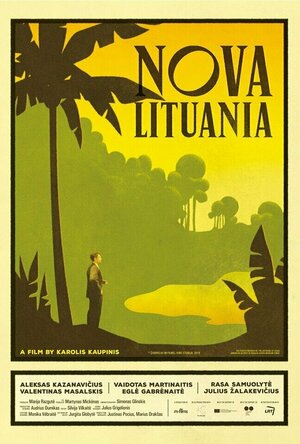
Nova Lituania (2019)
Movie
It's late 1930's. Foreseeing the upcoming war in Europe, Lithuanian geographer Feliksas Gruodis...
Mark @ Carstairs Considers (2492 KP) rated Murder at Mallowan Hall in Books
Jan 22, 2025 (Updated Jan 22, 2025)
Murder in Agatha Christie’s Library
Agatha Christie and her second husband, Max Mallowan, are throwing a house party when an unexpected guest arrives in the middle of a summer storm. The man says he is a reporter who has an interview lined up with the famous author. While Agatha doesn’t remember it, she instructs Phyllida Bright, her housekeeper, to set him up in one of the guest rooms, at least for tonight. But the next morning, Phyllida finds the man dead in the library. She doesn’t think the police are up to solving the crime, so she jumps in to find a few clues for them. But who was the victim? And who would want to kill him?
Fans of Agatha Christie will get a kick out of the wink and nods in the set up. But everyone will be hooked on this mystery, which had the clues and red herrings well layered to keep me guessing until the ending. While we got to know Phyllida and a few other characters well, I did feel like we got too much of her thoughts, which slowed things down and kept us from getting to know the suspects better. Only a handful of scenes were told from someone other than Phyllida’s point of view, but when it happened, it always made sense. And one of those scenes was absolutely perfect that way. While current events don’t play a big part in this 1930’s set book, it does give us a clear picture of what life was like for servants during that time. I’m hoping to get to the next book soon.
Fans of Agatha Christie will get a kick out of the wink and nods in the set up. But everyone will be hooked on this mystery, which had the clues and red herrings well layered to keep me guessing until the ending. While we got to know Phyllida and a few other characters well, I did feel like we got too much of her thoughts, which slowed things down and kept us from getting to know the suspects better. Only a handful of scenes were told from someone other than Phyllida’s point of view, but when it happened, it always made sense. And one of those scenes was absolutely perfect that way. While current events don’t play a big part in this 1930’s set book, it does give us a clear picture of what life was like for servants during that time. I’m hoping to get to the next book soon.
BankofMarquis (1832 KP) rated The Sting (1973) in Movies
Mar 29, 2020
On my list of All Time Favorite Films
I'll come right out and say it - the 1973 Academy Award winning film for Best Picture, THE STING, is one of the greatest films of all time. It's well written, well acted, well directed with a memorable musical score and characters, situations, costumes and set design that become richer over time and through repeated viewings.
Set in Chicago in the gangster-ridden, depression era mid-1930's, THE STING tells the tale of two con man who join forces for the ultimate con of a vile N.Y. Gangster who is responsible for killing a friend of theirs.
From everything I have read about it, the script by David S. Ward (who won an Oscar for his work) arrived pretty much finished. He shaped the story of the con men - and the myriad pieces of misdirection - fully before shopping it around to the studios. Universal jumped all over it and tabbed veteran Director George Roy Hill (BUTCH CASSIDY AND THE SUNDANCE KID) to helm the picture. Hill - being no dummy - saw this as a vehicle to re-team Newman and Redford (stars of Butch Cassidy) and the rest...as they say...is history.
Newman and Redford are perfectly cast as veteran grifter Henry Gondorff (Newman) and up and coming grifter Johnny Hooker (Redford). They have an ease of playing off of each other - each one complimenting the other one - both giving in their scenes with the other one which makes the scenes more rich and alive. They are joined by a veritable "who's who" of late '60's/early '70's character actors - Harold Gould, Eileen Brennan, Charles Durning, Ray Walston and Dana Elcar - all of them bring their "A" game and they are fun to watch. Special notice should be made to Robert Earl Jones (father of James Earl Jones) as Luther, the character who's fate propels the plot forward.
But...none of this would work if you didn't have a "bad guy" that was interesting to watch - and to root against - and bad guys don't get much better...and badder...than Robert Shaw's Doyle Lonnegan. Shaw plays Lonnegan as a physically tough boss who doesn't suffer failure, but is smart enough to avoid obvious traps. He is a worthy adversary of Gondorff and Hooker's and it is fun to watch Newman, Redford and Shaw play off each other. One other note - it was with this performance that Universal recommended Shaw to young Director Stephen Spielberg for his "shark flick" JAWS.
Edith Head won her 8th (and last) Oscar for the magnificent period costumes in this film and Marvin Hamlisch won for the Music - a surprising hit on the pop charts of re-channeled Scott Joplin tunes. The set design won an Oscar - as did the Director, George Roy Hill. All in all, the film won 7 out of the 11 Oscars it was nominated for (Redford was nominated for Best Actor, but did not win).
THE STING is a well crafted film. One that tells a timeless story and that stands the test of time as a testament of how great of an achievement in film this is. It is one of my All Time favorites.
Letter Grade: the rare A+
5 stars (out of 5) and you can take that to the Bank(ofMarquis)
Set in Chicago in the gangster-ridden, depression era mid-1930's, THE STING tells the tale of two con man who join forces for the ultimate con of a vile N.Y. Gangster who is responsible for killing a friend of theirs.
From everything I have read about it, the script by David S. Ward (who won an Oscar for his work) arrived pretty much finished. He shaped the story of the con men - and the myriad pieces of misdirection - fully before shopping it around to the studios. Universal jumped all over it and tabbed veteran Director George Roy Hill (BUTCH CASSIDY AND THE SUNDANCE KID) to helm the picture. Hill - being no dummy - saw this as a vehicle to re-team Newman and Redford (stars of Butch Cassidy) and the rest...as they say...is history.
Newman and Redford are perfectly cast as veteran grifter Henry Gondorff (Newman) and up and coming grifter Johnny Hooker (Redford). They have an ease of playing off of each other - each one complimenting the other one - both giving in their scenes with the other one which makes the scenes more rich and alive. They are joined by a veritable "who's who" of late '60's/early '70's character actors - Harold Gould, Eileen Brennan, Charles Durning, Ray Walston and Dana Elcar - all of them bring their "A" game and they are fun to watch. Special notice should be made to Robert Earl Jones (father of James Earl Jones) as Luther, the character who's fate propels the plot forward.
But...none of this would work if you didn't have a "bad guy" that was interesting to watch - and to root against - and bad guys don't get much better...and badder...than Robert Shaw's Doyle Lonnegan. Shaw plays Lonnegan as a physically tough boss who doesn't suffer failure, but is smart enough to avoid obvious traps. He is a worthy adversary of Gondorff and Hooker's and it is fun to watch Newman, Redford and Shaw play off each other. One other note - it was with this performance that Universal recommended Shaw to young Director Stephen Spielberg for his "shark flick" JAWS.
Edith Head won her 8th (and last) Oscar for the magnificent period costumes in this film and Marvin Hamlisch won for the Music - a surprising hit on the pop charts of re-channeled Scott Joplin tunes. The set design won an Oscar - as did the Director, George Roy Hill. All in all, the film won 7 out of the 11 Oscars it was nominated for (Redford was nominated for Best Actor, but did not win).
THE STING is a well crafted film. One that tells a timeless story and that stands the test of time as a testament of how great of an achievement in film this is. It is one of my All Time favorites.
Letter Grade: the rare A+
5 stars (out of 5) and you can take that to the Bank(ofMarquis)
